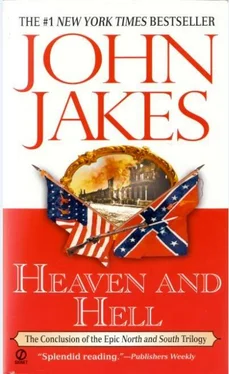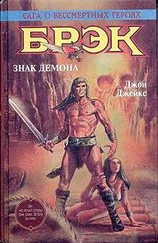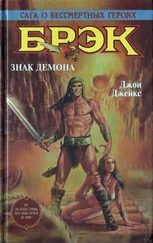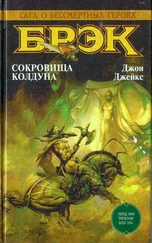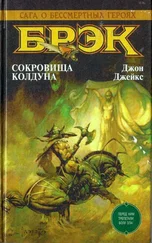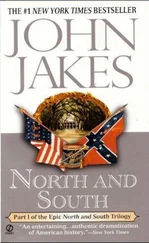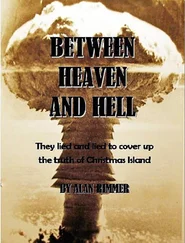Violence escalated. Negro Democrats leaving a meeting in Charleston were attacked by Negro Republicans and fought a pitched battle on King Street. Another race riot convulsed Ellenton, in Aiken County. Roving bands of blacks, disgruntled about low wages in the Combahee River rice fields, burned a mill and gin house near Beaufort and tore up track to derail a train bound for Port Royal.
Because of such incidents, extra troops were poured into South Carolina. Thousands of deputy marshals arrived to watch the polls and keep the elections honest. On October 17, in the wake of further pleas for help, President Grant sent a proclamation through General Thomas H. Ruger, ordering all South Carolina rifle clubs to disband. Most merely changed their names.
November 7. Election Day. Despite the presence of soldiers and marshals, men known to be residents of Georgia and North Carolina were seen at South Carolina polling places near the borders. Bands of horsemen galloped from hamlet to hamlet, voting in each. In notorious Edgefield County, where whites voted at the Court House, blacks with the courage to vote were sent to a tiny schoolhouse that couldn't accommodate them all before the polls closed. A few courageous blacks marched to the Court House to protest and demand their rights. Armed men organized by M. W. Gary, the district's foremost proponent of the Mississippi Plan, turned them back.
The shadow of fraud fell across the state and the country.
Disputed vote tallies in Florida, Louisiana, and South Carolina put the outcome of the presidential election in doubt. Democrat Samuel Tilden needed but one electoral vote to win. Rutherford B. Hayes needed nineteen. In the three disputed states, recounts would be necessary.
At first it seemed that South Carolina had given both parties a victory. Hayes had won his race by a narrow margin, with an equally narrow win going to Governor Hampton and his slate of Democratic legislators.
Then the recount began. South Carolina's Board of Canvassers was Republican, and these officials denied enough Democratic votes to ratify Hayes's election while overturning the victories of Hampton and his slate. Governor Chamberlain was given another term, and the Republicans a majority in the General Assembly. The Democrats shouted fraud.
Chamberlain's hold on the governorship was feeble. Late in November, Grant ordered troops into the State House to sustain his power.
Democratic legislators arriving at the General Assembly were turned away by Republican speaker E. W. M. Mackey. The Democrats organized in Carolina Hall and elected William Wallace as their speaker.
On December 7, Governor Daniel Chamberlain was inaugurated.
On December 14, in a separate ceremony, Governor Wade Hampton was inaugurated.
Observers didn't know whether they were watching a tragedy or a comedy. There was a four-day period in which both Republican and Democratic legislators met in the General Assembly. Both speakers entertained motions and conducted debates. There were simultaneous roll calls and simultaneous votes. Neither group would recognize the presence of the other. But much like the Union and Confederate soldiers who had confronted one another in the entrenchments at Petersburg, some of the opponents grew friendly. When the Republicans neglected to pay their gas bill and the company turned off the supply to the hall, the Democrats paid what was due.
The strain of operating two legislatures in one chamber, not to speak of the confusion, proved too great. The Wallace assembly returned to Carolina Hall. Then the courts judged Hampton and the Wallace legislature to be the legal claimants, but Chamberlain refused to give up the State House. Armed troops continued to enforce his authority.
Congress created a special election commission — five senators, five representatives, five Supreme Court justices — to arbitrate the disputed national returns. On February 9, 1877, the commission endorsed the official Florida tally favoring Hayes. On February 16, the commission endorsed the Louisiana tally favoring Hayes. On February 28, it endorsed the South Carolina tally favoring Hayes.
Tilden refused to contest the decisions. Southern Democrats immediately began negotiating that a Republican administration would be sympathetic to the Southern viewpoint. In return, the Democrats supported Hayes, who was peacefully inaugurated as President of the United States on March 5.
On March 23, President Hayes invited the gubernatorial claimants Hampton and Chamberlain to Washington for separate private meetings. Hampton was persuasive when pledging to uphold black rights if troops were withdrawn. Governor Chamberlain's weak hold on the State House was broken.
On April 10, following a decision by the Hayes cabinet, the detail of Army infantrymen in the State House in Columbia stacked arms and withdrew. The last occupied state in the South was no longer occupied.
On April 11, at noon, Wade Hampton entered the governor's office.
South Carolina was redeemed.
Reconstruction was finished.
"Name's George Hazard. I'm from Pennsylvania. A little town you've never heard of — Lehigh Station."
"Orry Main. From Saint George's Parish, South Carolina."
A conversation in New York City, 1842
In front of the stone barracks, the two met for the first time. The shorter boy, the blunt-featured one, had arrived on the morning steamer; the other, not until afternoon.
The taller boy was eighteen, a year older. He had a small diagonal scar on his right cheek. The scar and his long dark hair and strong facial bones gave him the look of an Indian. He was a gentle boy no bully ever bothered.
He spoke first. "Gus Main. Texas."
The boy with the strong chin and softer cheeks shyly extended his hand. "G. W. Hazard. Los Angeles."
"I remember you from Philadelphia."
"I remember you," G. W. said. "We ate a lot of popcorn together. We watched that eagle for hours."
"Yes, what was his name?"
"Wait a minute. Abe. Old Abe."
Gus grinned. "That's right. Do all you Yankees have a fantastic memory?"
"I'm not a Yankee, I'm a Californian."
An upperclassman marched out of the barracks and began to yell at them.
Across the Plain, on the veranda of the post hotel, the two old friends sat side by side in rockers, listening to the shouts in the June twilight. "Hats off whenever you address a superior, sir. Until you pass the entrance examination you are a disgusting object, sir. Putrefied matter, sir. Scum!"
Colonel Charles Main of the 1,500,000-acre Main Chance Ranch lit a cigar. William Hazard; president of Sundown Sea Realty Company and Diamond Acres Estates, rested his laced hands on his paunch.
"I enjoyed Willa's performance last night."
"She's glad to get back at it for a few months."
"Mr. Booth's a personable fellow. Talented, too. It was a great treat to have supper with him. I tell you, though, I couldn't expose my legs in black tights to six hundred strangers."
Charles shrugged. "He's an actor. He couldn't build a pontoon bridge over a flooded creek at night under sniper fire."
At the far edge of the Plain, members of the new United States Military Academy class stumbled into a semblance of a formation while upperclassmen continued to shout and scream. "You are lower than a plebe, sir! You, sir, are a thing, sir!"
Billy's round spectacles reflected the sunset. "I do feel guilty about coming up here with G. W. You and I act like a couple of doting mamas. My boy resented it."
"So did mine. Never mind, we're old grads. We're entitled to come back. I wanted to see the place."
"How do you feel about it?"
"Not sure," Charles said. He turned his chair so he could watch the great flag float in the evening breeze. Somewhere on the Hudson, a steamer whistled. "I think this place did some unexpected things to me. It made me into a soldier when I probably wasn't cut out for it."
Читать дальше
